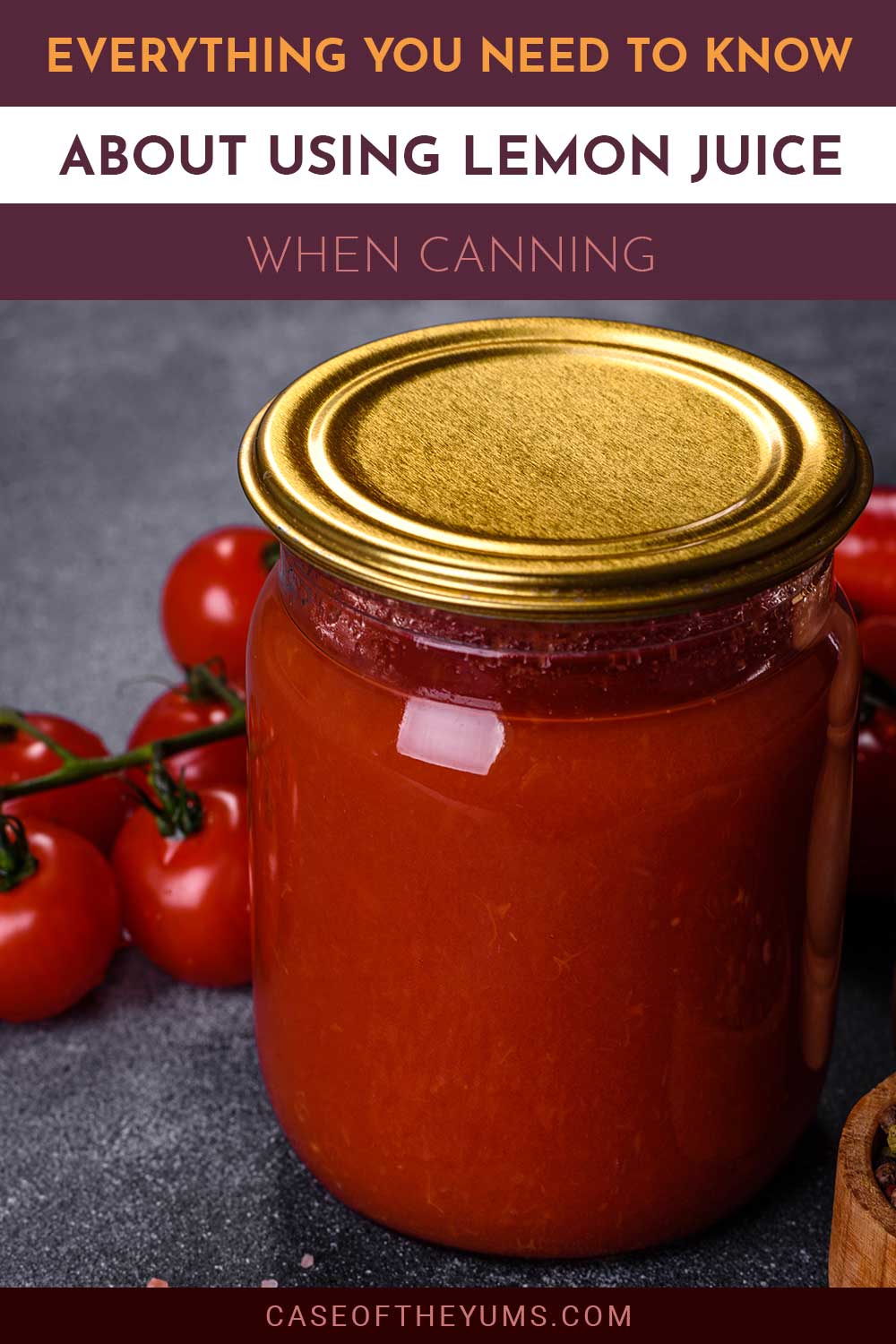Everything You Need to Know About Using Lemon Juice When Canning
We may earn commissions for purchases made through links on our site. Learn more on our about us page.
Lemon juice is a natural acid commonly used to preserve food at home. It is rich in vitamin C, also known as Ascorbic acid. This potent antioxidant prevents spoilage and the rotting of fresh produce.
Lemon juice, natural or bottled, helps in balancing out the pH factor and natural acids in fresh food, hence extending their shelf life. In addition, the citric acid found in lemon juice preserves the flavor and taste of the produce.
According to the USDA, you should only use bottled lemon juice for canning recipes. This is because bottled lemon juice has been uniformly acidified with a pH value of 5. This is the safe level to maintain when canning fresh food.

Why Do People Put Lemon Juice In Canning Tomatoes?
Canning tomatoes is a great way to preserve them. But tomatoes are considered acidic food, so they must be canned with care. Tomatoes have a pH in the range of 4.5 to 5.2. They have to be acidified with lemon juice to make them safe for canning.
Lemon juice, which has a pH of 2 to 3, is ideally suited. Bottled lemon juice is recommended since fresh lemon juice will have pH levels that fluctuate.
When Should You Put Lemon Juice In Canning Tomatoes?
You first need to sterilize the canning jars to prevent contamination. Wash the jars in hot soapy water and then place them in the water bath canner in boiling water for 5 minutes. Once done, keep the jars aside to cool as needed.
The lemon juice can then be added to the jars before filling them with the tomato product, or it can even be added after the tomato product has been put in the jars.
Add one tablespoon of bottled lemon juice to each pint jar or two tablespoons for a quart jar. A little salt or sugar can be added if desired.
What Does Lemon Juice Do To Canning Tomatoes?
Adding lemon juice to canning tomatoes lowers the pH value of the tomatoes. Therefore, acidifying the tomatoes is now recommended, as it makes for safe processing in a boiling water bath canner.
By using lemon juice, you can ensure that the acidity level remains constant. Lemon juice also prevents the growth of bacteria in tomato production.
What Happens If You Don’t Use Lemon Juice In Canning Tomatoes?
The possibility of bacterial growth is high if the tomatoes have not been acidified before canning.
This can result in food-borne illnesses like botulism, which can have fatal consequences. Therefore, the NCHFP strongly recommends using bottled lemon juice in canning tomatoes.
Does Lemon Juice In Canning Tomatoes Make It Last Longer?
Lemon juice primarily helps in lowering the pH value in tomato canning. An unopened home-canned tomato jar will last for 12 months or more if stored in a cool, dry place. You must also ensure that the jar lids are properly sealed.
Final Thoughts on Lemon Juice Canning
Canning tomatoes is a great way of preserving tomatoes and enjoying them year-round. They cost less and taste better than processed tomatoes.
They are also convenient to have in the pantry as they can be added to sauces, soups, and stews. As long as you follow the guidelines, you can always have a great ingredient to add to your dishes.



Leave a Reply
You must be logged in to post a comment.